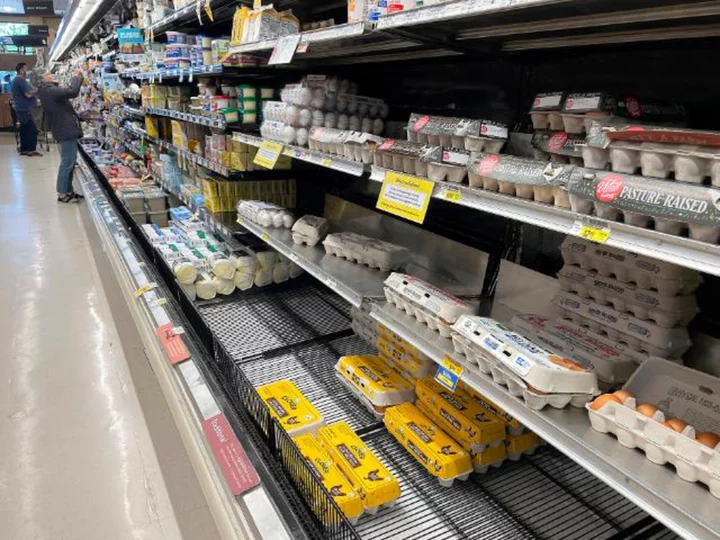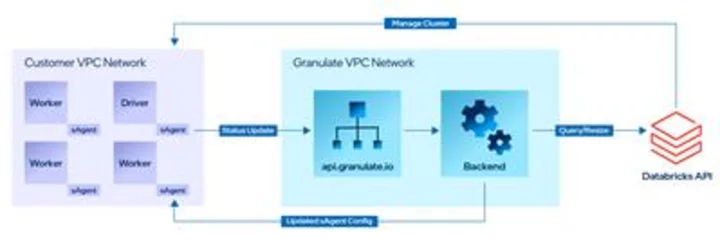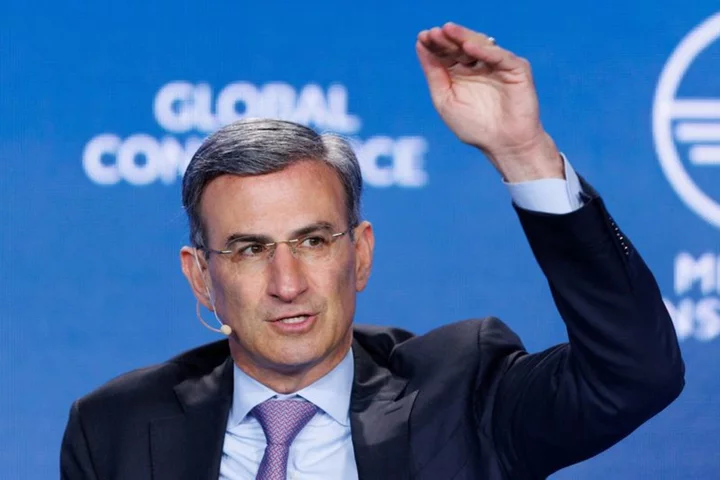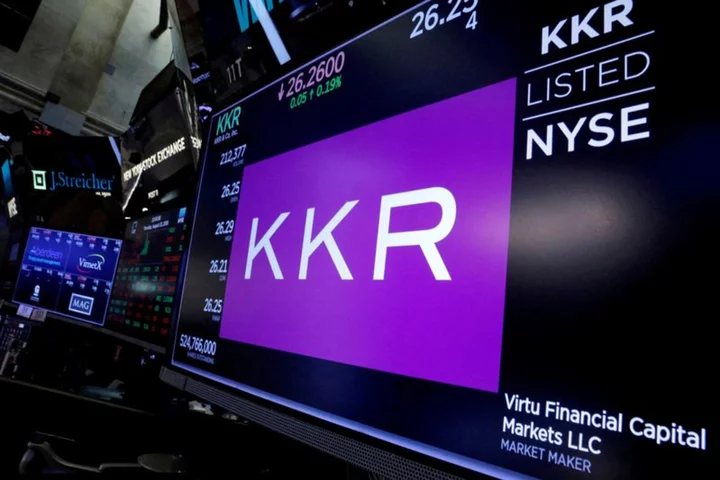For months and months, the price of eggs was soaring. Now, they're going splat.
As of last week, Midwest large eggs — the benchmark for eggs sold in their shells — cost just $0.94 per dozen in the wholesale market, according to Urner Barry, an independent price reporting agency. That's a sharp fall from $5.46 per carton just six months ago. (In retail, prices are well above $1 per carton, though they too have been declining.)
Why the decline? It's because of a reversal of supply-demand trends that caused prices to spike in the first place.
Last year, deadly avian flu wiped out a significant number of egg-laying hens, reducing egg supplies. On top of that, farmers had to deal with inflated feed and fuel costs.
The disruptions gave producers like Cal-Maine Foods, the largest US egg distributor, cover to hike prices way up and rake in huge profits.
But now supply is back on track: Though the industry braced for more cases of bird flu this year, the deadly virus seems to be under control. Meanwhile, demand hasn't kept pace.
The wholesale price drop began in late March, according to Karyn Rispoli, senior egg market analyst at Urner Barry. Prices hit annual lows in early May and have stayed about steady since then, she said.
"While the egg market in 2022 was dominated by the bird flu, the market this year has been dominated by its absence," Rispoli told CNN.
As of early December, there were about 308 million hens laying eggs for consumption, down from approximately 328 million in December 2021, according to the US Department of Agriculture. But the number has been growing since then: As of April, there were 314 million layer hens, according to the USDA.
Eggs? In this economy?
While improved avian flu situation has increased egg supply, the consumer demand is also slipping.
One reason: Shoppers responded to high egg prices by buying less. When prices were shooting up, "everybody and their brother had a story about what egg prices were doing," said Amy Smith, vice president at Advanced Economic Solutions, a consulting firm.
Eggs became "the poster child for what was going on with inflation," Smith added.
In the four weeks ending on April 22, unit sales of eggs in US retail dropped 4% compared to the same period the year before, according to NIQ, which tracks retail sales. (Still, egg sales have remained stable overall: NIQ data shows unit sales stayed essentially flat in the year through April, despite rising prices.)
Headlines aside, shoppers' demand for eggs typically drops in late spring, experts say.
"This is the time of year where demand cools off a little bit," said Brian Earnest, lead economist for animal protein in CoBank.
Demand for eggs typically rises around the winter holidays — when people bake and eat breakfast at home — and though it slows in the first quarter, it usually stays relatively strong. Not so this year.
"Shoppers are budget conscious at that time," after the holidays, he said, "so typically, they're probably putting more eggs in their basket than they normally do. But if you've got a high price environment, they're not over-buying."
Egg demand isn't likely to pick up again for a few months. After Easter and Mother's Day, demand typically takes a dip until the back-to-school season.
"Wholesale prices are entirely driven by market forces; they're not set by egg farmers," said Emily Metz, president and CEO of the American Egg Board, a farmer-funded group that is dedicated to increasing US demand for eggs.
Will egg prices decline in the grocery store?
Wholesale prices are taking a dive, but that doesn't mean consumers will get quite as much of a deal. Retail egg prices have been declining at a more moderate clip.
From March to April, egg prices fell 1.5% adjusted for seasonal swings, according to recent data from the Bureau of Labor Statistics. (On an annual basis, prices are still high: In the year through April, egg prices were 21.4% higher.)
Wholesale prices are typically more volatile than retail prices. That's because supermarkets and grocery stores set retail egg prices, and they don't want customers to be scared away by wild swings. So prices in the grocery store don't immediately follow wholesale trends.
"Just because wholesale prices go lower, it doesn't necessarily mean retailers will lower their prices," said Earnest. "So the consumer is still subject to a higher price point. And it'll take a while for that to get shaken out."
Smith, of Advanced Economic Solutions, expects grocery prices to "trickle downward."
Retailers, she noted, may be holding their breath for another round of egg disruptions.
"Before they completely deep discount something," she said, "they're going to make sure that nothing's going to upset the market in any way."









